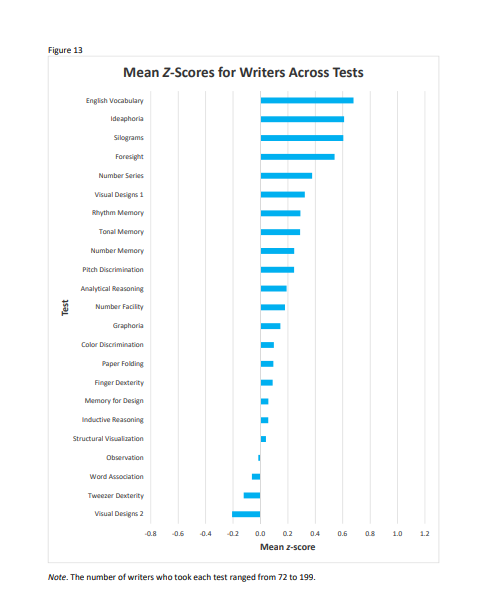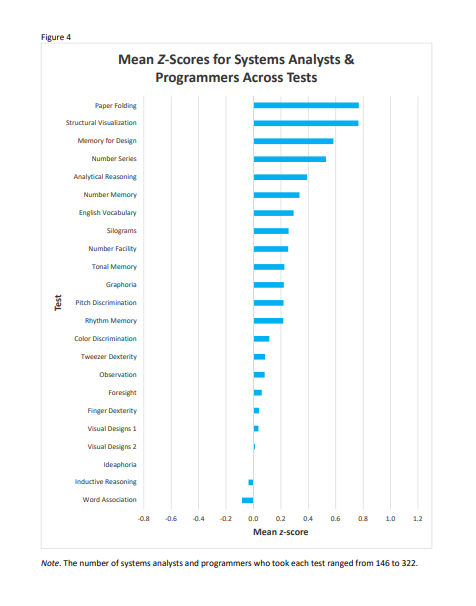In these plots, we examine the relationship between aptitudes and career fields by showing the average score for those within an occupational group on each of our standard battery tests. The data comes from clients who are already working when they come in for testing. Only clients who self-identify as being satisfied with their occupation, as opposed to disliking or being indifferent to it, are included in the occupation groups.
Information about how aptitudes might be associated with particular career fields can be useful to an examinee who is interested in a specific occupation, as well as providing supplemental validation for our tests. Research by JOCRF, as well as others who study vocational psychology, suggestions that using one’s talents leads to greater success and satisfaction in work.
We don’t use our occupational validation studies to tell a client that they can’t or shouldn’t pursue an occupation. While these graphs show trends in the professions they represent, we have found that there are individuals within the groups who have different talents than the group as a whole. The trends do, however, serve to guide our recommendations to clients looking for ways to lean in to their existing strengths.
Z-scores, the units used here, show units of standard deviation from the overall mean (or average) score of all our clients. A positive z-score is higher than the average; a negative z-score is lower than the average. A z-score of .3 or higher is generally seen as sufficiently different from the mean to be considered characteristic of an occupation.

The plot for writers shows that those we have tested score particularly high on English Vocabulary, Ideaphoria (rate of flow of ideas), Foresight (seeing possibilities), and Silograms (word learning ability). This positive correlation with these aptitude scores is what we would expect based on past research.
We see a different pattern for systems analysts and programmers. They tend to score higher than average in Paper Folding, Structural Visualization, Memory for Design, Number Series (Numerical Reasoning), and Analytical Reasoning.

More occupation plots, these arranged by aptitude instead of by career field, can be seen in our book, Choosing Intelligently.
















